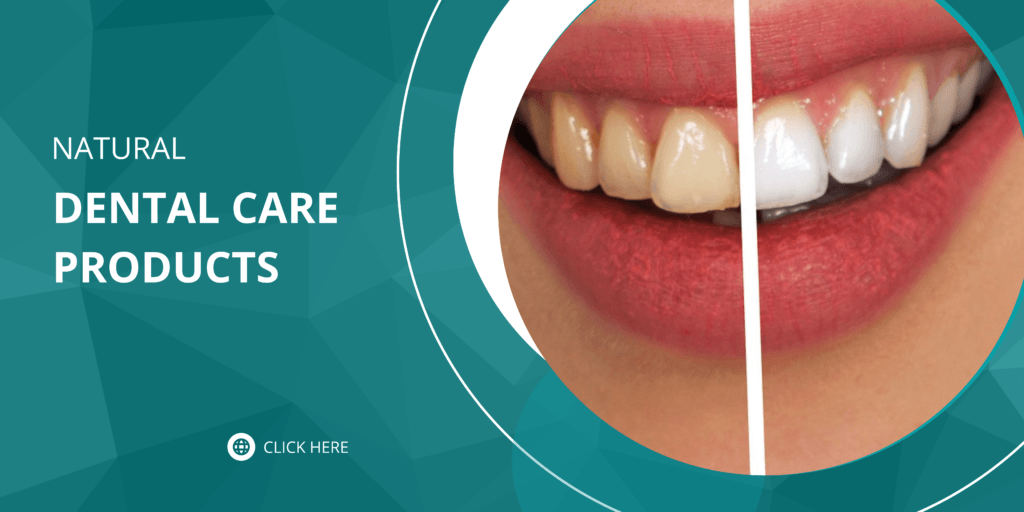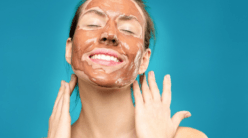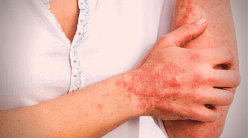Natural Remedies For Teeth Health

It’s time for a healthy smile…How?…Follow the post and you will learn the best ways on how to have healthy teeth.
Healthy Teeth Are A Mirror Of Our Health…meaning if you don’t take care of your overall health you will most likely experience teeth problems. Is Prevention Better Than Cure? 100% Yes!!!
A wise man once said: “Let Food Be Thy Medicine And Medicine Be Thy Food.” Hmm, these words have meaning, a?
Eat Natural Food, take care of a balanced diet, avoid an unhealthy lifestyle, and maintain oral hygiene.
‘Every tooth in a man’s head is more valuable than a diamond.’ – Miguel de Cervantes
Below are some of the top tips for healthy teeth:
1. Propolis For Teeth
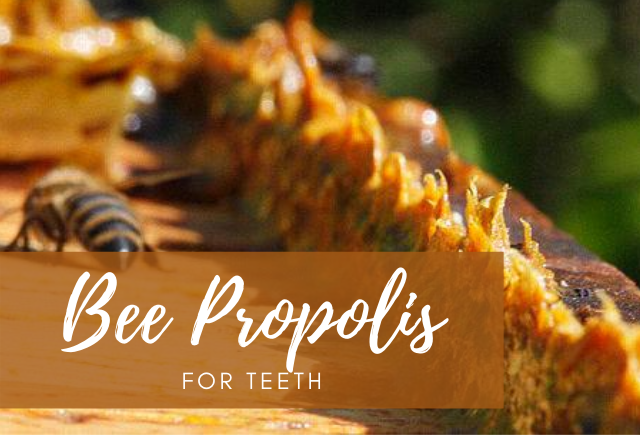
What Is Bee Propolis
Propolis or bee glue is a resinous sticky substance, which is created with the substance secreted from the bee’s glands.
What Is In Propolis
It has been used for anti-inflammatory purposes since ancient Egypt. Modern studies confirmed that propolis has a wide range of biological properties, including antibacterial, antiviral, fungicidal, antioxidative, free-radical scavenging, immunomodulatory, hepatoprotective, anti-diabetic, local anesthetic, radioprotective, and tumoricidal or anticancer.
What Is Propolis For
It has been found to be useful in many aspects of oral health, including prevention of dental caries, dental cavities, plaque inhibition, anti-inflammatory, gingival and periodontal diseases, and as an additive in toothpaste to control oral microbiota,…
Studies showed that propolis can be used effectively as an oral hygiene product and the treatment of oral candidiasis, denture stomatitis, viral infections, aphthous stomatitis, oral surgery, endodontics, and orthodontics.

Bee Propolis Benefits Teeth
A study evaluated the effect of bee propolis on recurrent aphthous stomatitis (RAS). Researchers found that 500 mg of propolis capsule taken daily significantly reduced outbreaks of RAS ulcers. Also, the quality of life of these patients significantly enhanced, and there was a decrease in the number of recurrence of these ulcers.
How To Use Propolis For Teeth Health
- Propolis Tincture For Improving Oral Health: Apply directly to the affected area up to 3 times a day or gargle few drops of tincture diluted in a small amount of water for 3 min daily, then spit it out!
- Propolis Supplement For Better Oral Health: Up to 3 capsules daily
CHECK THE LATEST OFFER OF BEE PROPOLIS HERE
2. Oil Pulling For Teeth

What Is Oil Pulling For Teeth
Oil pulling is the ancient Ayurvedic technique for oral health and detoxification. It includes the use of cold-pressed oils ( sesame, coconut oil, walnut oil, black seed,…) as a means of trapping harmful bacteria, fungi, and other organisms from the mouth, teeth, gums, and throat. Sesame oil is considered one of the best oils for this practice, although other oils are also beneficial.
Several studies show the efficacy of oil pulling therapy. One study shows that oil pulling with sesame oil can boost overall oral health. Researchers found that sesame oil helps to reduce the number of bacteria count in both teeth plaque and mouth saliva.
What Is Oil Pulling Benefits
Other benefits of oil pulling for oral health include:
- Complete strengthening of teeth, gums, and jaws
- Prevention of gums and mouth diseases, such as cavities and gingivitis
- Bad breath improvement
- A potential holistic remedy for bleeding gums
- It acts as a moisturizer for the lips, mouth, and throat
- …
Among oral health benefits, oil pulling also has overall health benefits, which include:
-
- Helps detoxify the body
- Headaches relief
- Hormone imbalances improvement
- Arthritis relief
- Improves the symptoms of allergies
- It can help with gastroenteritis
- Eczema reduction
- May reduce symptoms of bronchitis
- Kidney protection
- It can help reduce sinus congestion
- It can help reduce insomnia
How To Oil Pulling
The technique of oil pulling or oil gargling is actually very simple. It involves rinsing your mouth with 1 tablespoon of cold-pressed oil such as coconut oil. Swish it around your mouth for 10- 15 minutes daily, then spit it out and rinse your mouth well with fresh water. After that brush your teeth as normal.
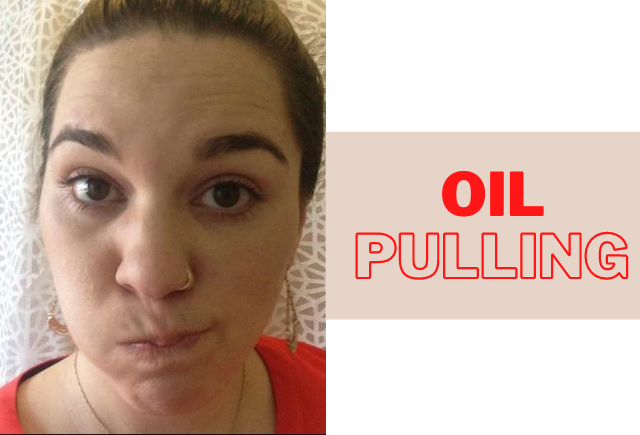
My Recipe For Oil Pulling
My personal recipe includes herbs that I infuse in cold-pressed oils up to 3 weeks. I prefer to use comfrey root, yarrow, and sage. Comfrey contains chemical substances called allantoin and rosmarinic acid, which helps to boosts the growth of new skin cells and bones and helps relieve pain and inflammation. Yarrow and sage both have anti-inflammatory, antibacterial, astringent and antiseptic properties, which makes it a great natural remedy for oral health. These three herbs make this oil very effective for dental care and contribute to the overall dental health. In regular use, the results are quickly visible. In addition to the already known benefits of oil pulling, the effect of this oil is increased.
How To Make This Very Effective Oil For Oil Pulling
- Blend dry herbs and put it in a glass jar
- Pour cold-pressed oil ( sesame, coconut oil, walnut oil, black seed,.. ) over the herbs in ratio 3:1, 3 parts oil, 1 part herbs! I prefer to use walnut oil, due to its capability of penetrating into cells.
- Place the mixture on a bright and warm place and let it soak for 3 weeks
- After three weeks, strain the mixture and store it in a cool and dark place
- Then the procedure is the same as for oil pulling without herbs
- FIND PRODUCTS HERE
3. Pu- Erh Tea For Teeth
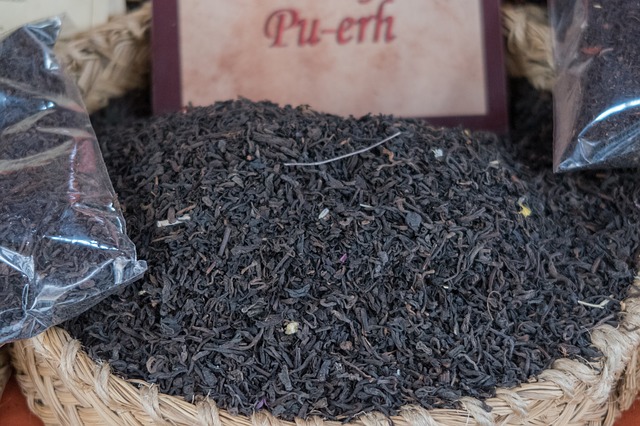
What Is Pu- Erh Tea
Pu-Erh tea is produced in Yunnan province, China. It is made from the plant Camellia sinensis, which is also used for making green, white, oolong, and black teas. Different teas are made using different processes. Pu- Erh tea is post-fermented, while green tea is not fermented, oolong tea is partially fermented and black tea is fully fermented.
What Is Pu- Erh Tea Benefits
Regular use of Pu- Erh tea has many benefits for our health. It has been found that the antioxidant and anti-inflammatory properties of Pu- Erh tea improve overall oral health. According to several studies, it can reduce the chance of developing periodontal disease, it reduces gum inflammation and improves the attachment of gums to the teeth. Pu- Erh tea also inhibits bacterial attachment to dental plaque.
Pu- Erh Tea And Teeth
A study published in 2003 investigated the effect of five commercial tea (green, oolong, black, Pu-erh and chrysanthemum) extracts. They found that extracts of two of the teas ( Pu-erh and chrysanthemum) significantly reduced attachment of all the Streptococcus ( pathogens commonly associated with dental plaque and the formation of caries ) strains, while other teas were not so effective. They concluded: “Pu-erh and chrysanthemum tea may have the potential to reduce attachment of oral pathogens to gingival tissue and improve the health of oral soft tissues.” While Pu-Erh tea has no side effects, chrysanthemum tea has many.
How To Make Pu- Erh Tea For Improving Oral Health
Pour a cup of boiling water over 1 teaspoon of tea and let it steep for 2- 5 minutes. Drink tea 3 times a day. You can re-steep the same tea several times. I usually use it 3 times. Bitter tannins are mostly gone in the first steeping, so the flavor won’t be so intense in the second steeping. Some Pu-Erh teas hold their flavor after 10 re-steepings! HERE IS THE BEST SELECTION OF PU-ERH TEA
4. Yarrow Is One Of The Oldest Natural Remedies For Teeth Health
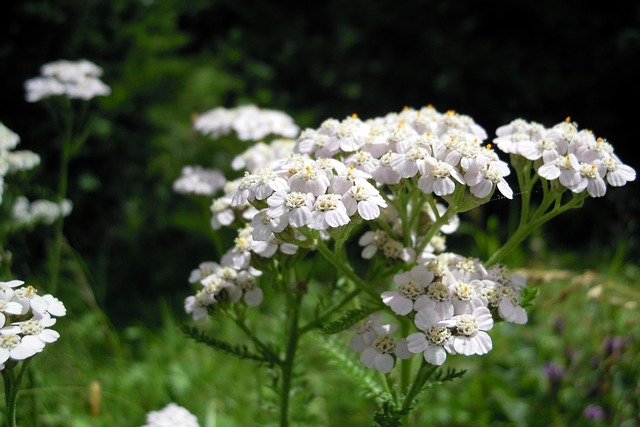
What Is Yarrow Plant
Yarrow or Achillea millefolium is one of the oldest herbs in folks medicine. The Latin name of the plant derives from the ancient Greek hero Achilles and it is said that during the Trojan War, yarrow was used to promote the healing of wounds. Many North American tribes chew the leaves as a remedy for a toothache as well as a number of other ailments.
What Is Yarrow Benefits
The anticoagulant, anti-inflammatory, analgesic, and antiseptic properties of Yarrow can benefit oral health in many aspects. Several studies confirmed its efficacy against many types of bacteria, even those Antibiotic-resistant bacteria. Yarrow is one of the best natural remedies for oral health.
How To Use Yarrow For Oral Health Care
- If you have access to the fresh plant, the best way to use it is to chew on the leaves and stems.
- Make a herbal infusion or dilute few drops of essential oil in a small amount of water and gargle it for 3 min daily! After 3 minutes spit it out! Use 1- 2 teaspoons of dry herb per cup of boiling water. Pour boiling water over the herb and let it steep for 10 min. Strain and use when the tea has cooled down
- Grind dry herb into a fine powder, add some cold-pressed oil to form a paste and use it for gum massage. Apply this paste up to 3 times per day!
- CHECK THE BEST PRODUCTS HERE
5. Sage For Teeth
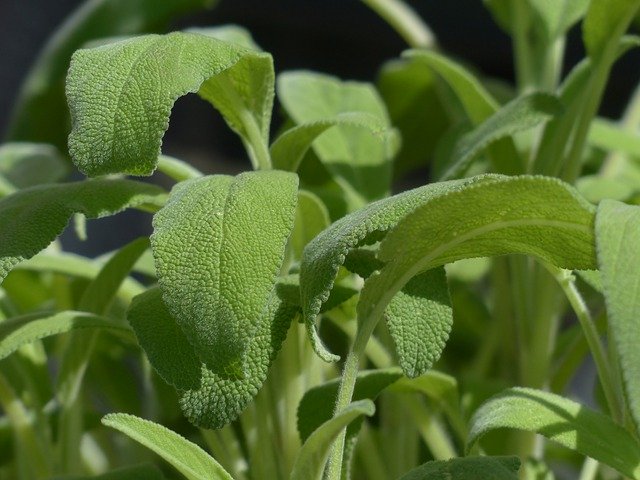
What Is A Sage
Salvia officinalis also known as Sage is one of the most commonly used herbs in traditional medicine. It has been found that Sage possesses a range of therapeutic activities including antibacterial, antiviral, antifungal, and antioxidant effects. It fights plaque to prevent and cure damage from tooth decay and can help clean out oral sores.
What Is Sage Good For
Sage is also great for bad breath or Halitosis. According to several studies, Sage is beneficial for illnesses of mouth and throat, such as tonsillitis. It’s great for overall health, not only for dental health. Many primitive people use fresh leaves of Sage to stop a toothache, bleeding, and prevent plaque and tooth decay. Sage is a powerful antibacterial agent, capable of fighting Antibiotic-resistant bacterias.
Sage And Teeth
A study investigated “The antibacterial effect of sage extract (Salvia officinalis) mouthwash against Streptococcus mutans in dental plaque: a randomized clinical trial” This study included 70 girls aged 11–14 years. These students were randomly divided into 2 groups. One group received Sage extract mouthwash and other group received placebo without any active ingredients. The results were expected and at the same time surprising. They found that “Sage mouthwash significantly reduced the colony count. The average number of colonies in the test group was 3900 per plaque sample at the baseline, and 300 after mouthwash application.” They concluded that “The Sage mouthwash effectively reduced the number of Streptococcus mutans in dental plaque.”
How To Use Sage For Oral Health
- If you have access to the fresh plant, the best way to use it is to chew on the leaves and stems.
- Make a herbal infusion or dilute few drops of essential oil in a small amount of water and gargle it for 3 min daily! After 3 minutes spit it out! Use 1- 2 teaspoons of dry herb per cup of boiling water. Pour boiling water over the herb and let it steep for 10 min. Strain and use when the tea has cooled down.
- Grind dry herb into a fine powder, add some cold-pressed oil to form a paste and use it for gum massage. Apply this paste up to 3 times per day!
- GET SAGE HERE
6. Neem For Teeth

What Is The Neem
Neem or Azadirachta indica has been used in Ayurvedic medicine for over two millennia. It has many benefits for our health. Neem products are believed to be antiviral, antibacterial, anthelmintic, antifungal, antidiabetic, contraceptive, and sedative.
How To Use Neem
Traditionally, slender neem twigs or also called datun are first chewed as a toothbrush and then split as a tongue cleaner. It has been proven to be as effective as a toothbrush in reducing plaque and gingival inflammation.
Neem leaf gel or neem toothpaste can help prevent the development of plaque on the teeth. Plaque is the reason for many dental issues, including cavities, gingivitis and tooth decay.
Is Neem Good For Improving Oral Health
A study investigated the effect of Neem in 45 patients with plaque-induced gingivitis. They were equally divided into three groups in which one group received 15 ml of neem mouthwash twice daily, other group received 15 ml of chlorhexidine mouthwash twice daily and the third group received 15 ml of saline twice daily. Results showed; ” Our result showed that an A. indica mouth rinse is equally effective in reducing periodontal indices as Chlorhexidine. The results demonstrated a significant reduction of gingival, bleeding, and plaque indices in both groups over a period of 21 days as compared to placebo.” They concluded that neem may be used as an adjunct therapy in treating plaque-induced gingivitis with fewer side effects as compared to chlorhexidine.
Neem Powder Benefits
Neem bark powder is traditionally used in India because it’s much more effective. The studies have mostly tested extracts from leaves. Extracts of Neem sticks or bark have been shown to inhibit the growth of Streptococcus mutans ( harmful bacteria) and significant reductions in bacterial adhesion.
Several studies have shown that Neem based mouthwashes are highly efficacious and may be used as an alternative therapy in the treatment of periodontal diseases.
How To Use Neem For Oral Health
- Neem Stick Toothbrush– chew on this twig, every morning and evening. As the fibers separate after chewing, the twig forms a brush at the end and you can start brushing your teeth with is as well.
- Chew Neem Leaves Or Neem Bark 2x per day
- Neem Mouthwash– Make a herbal infusion and gargle it for 3 min daily. After 3 minutes spit it out! Use 1- 2 teaspoons of dry herb per cup of boiling water. Pour boiling water over the herb and let it steep for 10 min. Strain and use when the tea has cooled down.
- Oil Pulling With Neem – take about ¼ teaspoon neem powder on your clean finger and gently massage it around each tooth. Then take 1 tablespoon of cold-pressed oil such as coconut oil in your mouth and swish the oil and neem powder around the mouth for 3-20 minutes daily! After that spit it out and clean your teeth as usual!
- Brush With Neem Toothpaste
- Make Your Own Neem Toothpaste– it’s simple, cheap, and effective:
- 3 tablespoons of extra virgin coconut oil
- 2 tablespoons of sodium bicarbonate ( baking soda )
- 1 tablespoon of organic Neem powder
- 15 drops of peppermint essential oil
Mix all the ingredients until you reach toothpaste consistency and store it in a glass jar in your bathroom. GET IT HERE
7. Turmeric For Teeth

What Is Turmeric Good For
Turmeric is well known for thousands of years because of its benefits for our health. It’s anti-inflammatory and antibacterial properties make this remedy one of the strongest natural agents for dental health. Turmeric has been used in Ayurvedic medicine for centuries in tooth and gum care rub.
A rhizome of Turmeric or Curcuma longa is one of the most researched plants on Earth. It has proven properties like anti-inflammatory, antioxidant, antimicrobial, hepatoprotective, immunostimulant, antiseptic, and antimutagenic. Because of these properties, it can help in many aspects of dental health. It turns out that turmeric plays an important role in the treatment of periodontal diseases and oral cancers.
Turmeric For Oral Health
Curcuma can be used in the following ways to relieve dental issues:
- Dental Pain– Massaging the affected area with turmeric powder eliminates pain and swelling
- Periodontal Problems- A paste made from 1 tsp of turmeric with ½ tsp of salt and ½ tsp of mustard oil provides relief from gingivitis and periodontitis. It is recommended to apply this paste twice a day to affected teeth and gums.
- Local Drug Delivery System- “In a study conducted by Behal et al., 30 subjects with chronic localized or generalized periodontitis with a pocket depth of 5-7 mm were enrolled in split-mouth study design. Control sites received Scaling and Root Planing [SRP] alone, while experimental sites received SRP plus 2% whole turmeric gel. Both groups experienced statistically significant reduction in plaque index, gingival index, sulcus bleeding index, probing pocket depth, and gain in relative attachment loss. There was a significant reduction in the trypsin-like enzyme activity of “red complex” microorganisms. Greater reduction was observed in all parameters in the experimental group in comparison to those in the control group.” They found that ” the local drug delivery system containing 2% whole turmeric gel can be used as an adjunct to scaling and root planning”
- Subgingival Irrigant– “In a study conducted by Suhag et al., periodontal sites were treated on day 0 (baseline) by a single episode of scaling and root planing. Subsequently selected sites were irrigated (triple irrigation regimen) with either saline (0.9%), chlorhexidine (0.2%), curcumin (1%), or served as nonirrigated control sites on day 0 (baseline) immediately the following instrumentation. Triple irrigation regimen was repeated for the next 5 consecutive days and on days 15 and 21. Clinical parameters recorded were probing pocket depth (PPD), bleeding on probing (BOP), and redness for 200 sites in 20 patients with chronic periodontitis. The results indicated that the irrigated sites had significant improvement in all parameters as compared with the nonirrigated sites on days 2, 3, 4, and 5. The curcumin group showed a significant reduction in BOP (100%) and redness (96%) when compared with the chlorhexidine group and saline group on day 5. However, the difference between groups was not significant at the next recall visits. Mean PPD reduction was significantly greater for the curcumin group than all other groups on all post-treatment days. Thus, 1% curcumin solution can cause better resolution of inflammatory signs than chlorhexidine and saline irrigation as a subgingival irrigant.”
- Pit And Fissure Sealant- “This sealant may be produced from a composition comprising a polymerizable resin system containing acrylic monomer and at least one colorant selected from the group consisting of annatto extract, turmeric extract, and β-Apo-8’-Carotenal”
- Anticancer Properties- It has been proven that Curcumin, a compound found in Turmeric possess anticancer activities because of its effect on a variety of biological pathways involved in mutagenesis, oncogene expression, cell cycle regulation, apoptosis, tumorigenesis, and metastasis. It also has the ability to potentiates the effect of chemotherapy and acts as an enhancer of radiotherapy.
- GET PRODUCTS HERE
8. Essential Oils For Oral Health

Essential Oils For Teeth
Essential oils have many properties that can contribute to overall oral health. Essential oils have been used for the treatment of various ailments since ancient times and have gained popularity over the years.
According to several studies, there is considerable evidence that Essential oils have the potential to be developed as preventive or therapeutic agents for various oral diseases. Because of their antibacterial, antifungal, anti-inflammatory and antibiofilm properties, essential oils are a great alternative for maintaining healthy teeth and gums.
Essential Oils And Teeth
Bellow are possible uses of essential oils in dentistry:
- Oral Hygiene Adjunct– Essential oils (EOs) mouthwashes are found to be equally effective in inhibiting plaque as commercial mouthwashes. Eos can be used as an alternative to chlorhexidine mouthwash. Chlorhexidine causes unwanted effects on long-term use, but essential oils are not. It has been shown that EOs possess antimicrobial activity against subgingival periopathogens.
- As Preservative– Studies confirmed that EOs showed higher inhibitory activity against tested microorganism strain than extracts and methylparaben. One of those studies suggests the use of essential oils as a substitute of methylparaben in cosmetic emulsions and various dental products.
- In Dental Implants– Due to the antibiofilm activities of several Essential oils, they can be used with dental implants. It has been shown that the treatment of dental implant material surfaces with essential oils inhibits biofilm production.
- Wound Dressing – As stated by the study done by Budzynska et al., better therapeutic effects can be achieved from the wound dressings containing essential oils. Consequently, EOs can be used to achieve better and faster healing after oral surgical procedures.
- Anxiolytic– Aroma of certain essential oils ( lavender, eucalyptus, orange,..) can change emotional states and reduce mild anxiety in dental patients when used in the waiting area. EOs are also great to reduce the pain of needle insertion. The orange essential oil has been shown to reduce salivary cortisol and pulse rate due to child anxiety state.
What Essential Oils For Teeth
- Peppermint Oil– is one of the most used essential oils for oral health. Its therapeutic properties include Antibacterial, Antifungal, and Antibiofilm effects.
- Tea Tree Oil-Due to the strong antibacterial and antifungal effects, this oil is very effective for oral health. It possesses an inhibitory effect on various bacterial colonies and dental biofilm.
- Eucalyptus Oil- The Antimicrobial effect of this oil has activity against Gram-negative bacteria (Escherichia coli) as well as Gram-positive bacteria (Staphylococcus aureus). Studies confirmed that Eucalyptus odorata oil has a strong cytotoxic effect and also antibacterial effect against S. aureus, Haemophilus influenzae, Staphylococcus pyogenes, and Staphylococcus pneumonia. It is also known for its anti-inflammatory properties.
- Lavender Oil- Antimicrobial, antibacterial, antifungal and anxiolytic properties of this oil contribute to overall oral health and health in general.
- Clove Oil- Eugenol is a colorless or pale yellow liquid compound present in the oil of cloves and other oils and is well-known for its therapeutic properties and is widely used in dentistry. Antioxidant, antifungal and antibacterial properties make this oil one of the most used essential oils for oral health.
- Cinnamon Oil- Medicinal activities of this oil are known as antimicrobial, antimutagenic, antiparasitic, antioxidant, and free radical scavenging properties. All these activities contribute to healthier teeth and gums.
How To Use Essential Oils For Teeth
- Add a drop of essential oil to your toothpaste for fresh breath and to kill bad bacteria.
- Use it to make your own homemade toothpaste!
- Massage a few drops of essential oil diluted in a carrier oil in the ratio 1:9 ( one part essential oil, nine parts of carrier oil such as coconut oil) on gums twice daily to combat gingivitis.
- Gargle a few drops in water at the first sign of a sore throat or tickle. You can also apply a few diluted drops directly on the throat.
- Use 1-2 drops for mouth sores, or to speed healing of sores. You should swish it around your mouth with carrier oil or water for 3 minutes daily.
- Soak dental floss in a few drops of essential oil to kill bacteria.
- Apply several diluted drops orally once daily at night to fight cavities and for healthy teeth.
- Apply diluted on cold sores and canker sores.
- Add a drop of essential oil to your preferred oil to use for oil pulling.
Click Here If You Want To Learn More About Amazing Benefits Of Essential Oils
9. Home Remedies For Teeth Whitening

What Home Remedies For Whiter Teeth
Herbal homemade toothpaste, natural tooth powder, and all-natural mouthwash heal gums, freshen breath, and even whiten teeth. Avoid conventional toothpaste containing chemicals like sodium lauryl sulfate ( a harsh detergent), alcohol (which dries tissue ) and artificial colors and flavors.
Make your own toothpaste. It’s easy, cheap and effective. I’ve been using only homemade toothpaste for years without side effects. My teeth and gums are healthy and without cavities, carries or other oral problems. I don’t feel any sensitivity, my teeth are white and gums are healthy. Even a dentist was surprised when he saw my teeth. Of course, oral health requires proper nutrition full of calcium and limestone as well as other essential nutrition for healthy teeth and gums. Avoid sugars and white flour, eat healthy, cook your meals daily, and follow a diet such as the Mediterranean diet.
How To Make Homemade Tooth Powder
- 3 tablespoons of baking soda
- 1 tablespoon of sea salt
- 1 tablespoon comfrey root powder
- 1 tablespoon turmeric powder
- 3 drops of clove essential oil
- 5 drops of peppermint essential oil
Mix all ingredients together and store it in a glass jar. Before using, moisten toothbrush and dip it into the powder.
How To Make Homemade Toothpaste
- 3 tablespoons of raw coconut oil
- 1 tablespoon of baking soda
- 1 tablespoon sea salt or eggshell powder
- 1 tablespoon of herbal powder ( turmeric, comfrey root, sage,….)
- 3 drops of cinnamon essential oil
- 5 drops of peppermint essential oil
Melt or slightly soften coconut oil then add other ingredients and stir it well until you get a toothpaste constancy. Store mixture in a glass jar. Dip a toothbrush in the mixture and scrape small amount onto bristles.
How To Make Homemade Mouthwash
- 2 tablespoons of peppermint powder
- 3/4 cup of boiled water
- 1 tablespoon of organic Aloe Vera Arborescens gel
- 5 drops of Tea tree essential oil
- 3 drops of peppermint essential oil
Put the herbs in the bowl and pour over boiling water. Cover the bowl and soak herbs for 30 minutes. After 30 min, strain it and add aloe gel and essential oils. Stir well and store in a dark glass jar. Shake the jar well before use, then take 1- 2 tablespoons of mouthwash and swish it around your mouth for 3 minutes. After 3 minutes spit it out. Store in a cool place and consume within a week.
Mouthwash For Bleeding Gums
- 1 tablespoon of black tea
- 1 tablespoon of green tea
- 3/4 cup of boiled water
- 1 tablespoon of Witch hazel powder
- 1/2 teaspoon of Goldenseal (Hydrastis Canadensis)
- 5 drops of Guggul ( Commiphora Mukul ) tincture
- 3 drops of Lemon essential oil
Put black and green tea in the bowl and pour over boiling water. Cover the bowl and soak herbs for 30 minutes. After 30 min, strain it and add other ingredients. Stir well and store in a dark glass jar. Shake the jar well before use, then take 1- 2 tablespoons of mouthwash and swish it around your mouth for 3 minutes. After 3 minutes spit it out. Store in a cool place and consume within a week.
Strawberry For Teeth Whitening
For the glossy silky look of teeth, mash mature strawberries in the puree and soak the toothbrush in. Clean your teeth with it. After brushing rinse your teeth thoroughly, because the strawberries are very sour. Use it once a month or every other month.
Home Remedies For Bad Breath
- Chew 1/2 teaspoon fennel seeds or aniseeds and your breath will smell better.
- Chew fresh parsley. It is effective against bacteria and plaque.
- Gargle liquid chlorophyll solution in the water, which removes the bacteria that cause bad breath. Dilute 1 teaspoon of chlorophyll in a small glass of water.
Wanna Learn More About Oral Health? Click Here
REFERENCES:
- The effect of bee propolis on recurrent aphthous stomatitis: a pilot study: https://www.ncbi.nlm.nih.gov/pubmed/17285269
- Oil pulling for maintaining oral hygiene – A review: https://www.sciencedirect.com/science/article/pii/S2225411016300281?via%3Dihub
- Inhibition of attachment of oral bacteria to immortalized human gingival fibroblasts (HGF-1) by tea extracts and tea components: https://www.ncbi.nlm.nih.gov/pmc/articles/PMC3637544/
- The antibacterial effect of sage extract (Salvia officinalis) mouthwash against Streptococcus mutans in dental plaque: a randomized clinical trial: https://www.ncbi.nlm.nih.gov/pmc/articles/PMC4676988/
- To evaluate the antigingivitis and antiplaque effect of an Azadirachta indica (neem) mouthrinse on plaque induced gingivitis: A double-blind, randomized, controlled trial: https://www.ncbi.nlm.nih.gov/pmc/articles/PMC3283940/
- Role of curcumin in systemic and oral health: An overview: https://www.ncbi.nlm.nih.gov/pmc/articles/PMC3633300/
- Essential oils, their therapeutic properties, and implication in dentistry: A review: https://www.ncbi.nlm.nih.gov/pmc/articles/PMC4606594/
- The complete book of herbs, Reader’ Digest (Australia) Pty Limited 2008
Disclaimer: All information presented on this website is for informational purposes only. These statements have not been evaluated by the Food and Drug Administration. This website is not intended for diagnosis, treatment, treatment or prevention of disease and is not intended for substitution treatment. This information is not meant to cover all possible uses, precautions, interactions or adverse effects. This information may not fit your specific health circumstances. Never delay or disregard seeking professional medical advice from your doctor or other qualified healthcare providers because of something you have read on whatcure.com. Please seek the advice of a healthcare professional for your specific health concerns.




